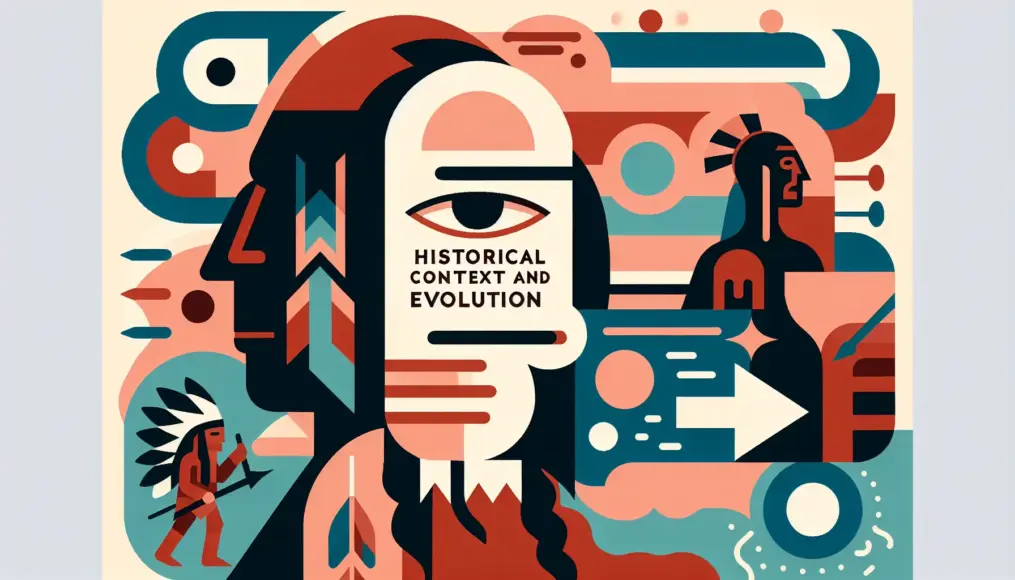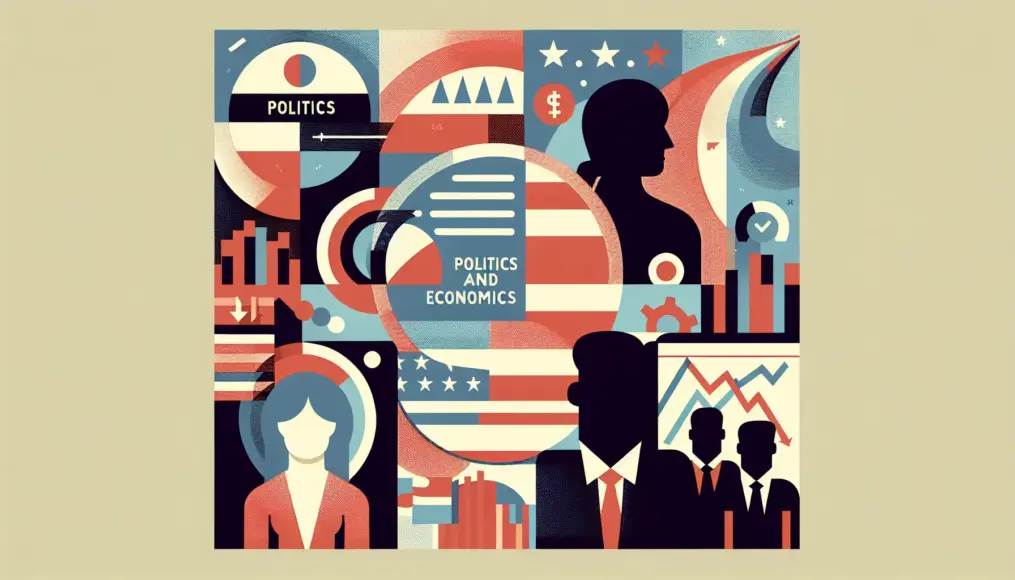The realms of economy and thought have intertwined and diverged throughout history, shaping our culture in profound ways. By investigating this historical relationship, we can gain new insights that guide us into the future. Understanding how culture influences the economy, as well as tracking the evolution of ideas, can help us tackle the challenges we face today and discover viable solutions.
In this article, we will delve into the historical crossroads between economy and thought, examining how our culture can serve as a key to unlocking the future. We will connect economic concepts and historical narratives from diverse perspectives, shedding light on their impact on our daily lives.
- The Relationship Between Basic Economic Concepts and Culture
- Historical Trends and Characteristics of Thought
- Cultural Approaches to Contemporary Challenges
Understanding the Relationship Between Culture and Economy
Culture and economy are closely intertwined, and grasping their relationship is crucial for understanding contemporary societal trends. The economy isn’t just about material transactions; it is also significantly shaped by cultural influences. Culture impacts the economy in various ways, affecting consumer behavior, market trends, and even national policies. In this section, we will explore the fundamental concepts of economics and how culture influences economic activities.
Fundamental Concepts of Economics
Economics is the study of how to allocate and utilize limited resources. At its core, it revolves around the production and distribution of goods and services to satisfy people’s needs and desires. Key concepts in economics include supply and demand, pricing, and competition. All these elements evolve in response to cultural and societal influences.
Economic activities are also affected by cultural backgrounds, meaning that the same economic theories can yield different results across diverse cultures. For instance, in regions where traditional values are strong, consumer behavior may become more cautious. Conversely, in cultures that prioritize innovation and change, new trends and products are often more readily embraced.
- Economics is the study of resource allocation.
- Supply and demand, pricing, and competition are fundamental concepts.
- Cultural backgrounds influence economic activities.
The Influence of Culture on the Economy
Culture is one of the significant factors that profoundly impacts the economy. For example, consumers’ values and lifestyles exert a direct influence on economic activities. Consumption patterns based on traditions and customs can either boost or diminish the demand for specific products. Additionally, cultural events and festivals often play a vital role in revitalizing local economies.
Moreover, the influence of culture on the economy extends to international business. As countries with different cultural backgrounds interact, economic activities become increasingly diverse. Understanding and respecting cultural differences is essential for international trade and business strategies.

If you found this article interesting, you might also enjoy reading “What Are Labor Issues? Their History and Impact on Modern Society.” This article delves into how labor issues affect the economy and culture, helping you gain a deeper understanding of this important theme in modern society.
- Culture influences consumer values and lifestyles.
- Traditions and customs affect product demand.
- Understanding culture is vital in international business.
The Evolution of Thought Through Historical Context
Throughout history, thought has evolved under the influence of various eras and cultures. Much like economics, ideas have played a significant role in shaping our world. By understanding the currents of thought in different periods, we can gain deeper insights into the challenges and values that define contemporary society. In this section, we’ll explore the historical flow of thought and the distinctive ideas that characterize each era.
The Historical Flow of Thought
The history of thought has undergone a myriad of transformations, from ancient civilizations to modern times. Ancient philosophers delved into profound questions about human existence and the structure of society, leading to the emergence of critical theories in ethics and politics. During the Middle Ages, religious ideas exerted a powerful influence, shaping societies based on faith.
As we moved into the modern era, scientific reasoning and rationalism began to take hold, providing new perspectives on economics and society. This shift led to a diversification of thought, impacting various fields and allowing us to trace how our current values have been formed. Understanding this evolution helps us comprehend the foundations of contemporary beliefs.
- Thought has evolved from ancient times to the present
- Religious ideas had a strong influence during the Middle Ages
- The modern era saw the rise of scientific reasoning
Distinctive Features of Thought in Each Era
Each historical period is marked by its unique philosophical characteristics. In ancient times, philosophers like Plato and Aristotle laid the groundwork for theories on ethics and politics. The Middle Ages were dominated by Christian doctrine, which emphasized maintaining social order through religious belief.
With the advent of modernity, Enlightenment ideas gained traction, elevating values such as freedom and equality. Notably, the societal transformations following the Industrial Revolution had a profound impact on both economics and thought, giving rise to new ideologies such as capitalism and socialism. Thus, the ideas of each era are deeply intertwined with their respective social and economic contexts.
- Ancient thinkers developed theories on ethics and politics
- The influence of Christianity was strong during the Middle Ages
- The modern era diversified thought through Enlightenment ideals and economic changes
The Intersection of Economy and History
Economy and history are deeply intertwined, influencing each other in ways that shape our present and future. Economic policies are often shaped by the cultural values and ideas of their time, while historical events can significantly impact economic conditions. Understanding this dynamic is crucial for looking ahead. In this section, we will explore the relationship between economic policies and culture, as well as the effects that historical events have had on the economy.
The Connection Between Economic Policies and Culture
Economic policies are greatly influenced by the cultural background of a nation or region. For instance, in a culture that values individualism, economic policies tend to favor greater market freedom. Conversely, countries with a collectivist culture often implement economic policies that involve stronger government intervention.
Cultural values also play a significant role in consumer behavior. In societies where environmental protection is prioritized, there is a growing demand for sustainable products and services. As a result, economic policies frequently reflect these environmental considerations. Thus, the interplay between economic policies and culture shapes the overall economic activities within society.
- Economic policies are influenced by cultural backgrounds
- The impact of individualism and collectivism on economic policies
- Cultures prioritizing environmental protection tend to advance sustainable policies
The Impact of Historical Events on the Economy
Historical events can profoundly affect the economy. Events such as wars, revolutions, or economic crises can dramatically alter a nation’s economic policies. These occurrences often serve as catalysts for the development of new economic systems and policies.
Additionally, the economic repercussions of historical events frequently lead to long-term changes. For example, a major economic crisis like the Great Depression can fundamentally change the government’s role and the prevailing views on economic policy. Understanding the evolution of the economy through historical events is essential for predicting future economic trends.
- Historical events can dramatically shift economic policies
- Wars and revolutions can give rise to new economic systems
- Economic crises can fundamentally alter the government’s role
Contemporary Challenges and Future Perspectives
Today’s society is shaped by a complex interplay of economics, ideologies, and historical contexts. Within this framework, it is essential for us to explore future possibilities through the discovery of hidden needs and the adoption of new cultural approaches. These needs and strategies are likely to bring fresh influences to economic activities and social structures. In this chapter, we will revisit contemporary challenges and contemplate future prospects.
Discovering Hidden Needs
In the modern economy, consumer needs have become increasingly diverse. As a result, it is crucial for businesses and individuals to identify these hidden needs. For instance, the demand for environmentally friendly products and services continues to rise, necessitating innovative business models to meet this demand. Additionally, there is a growing interest in health and wellness, leading to an increased market for related products and services.
Moreover, as digitalization accelerates, online communication and service delivery play a pivotal role. This evolution gives rise to new consumer needs, compelling companies to respond promptly. The discovery of hidden needs holds the potential for driving future economic growth.
- Consumer needs are becoming more diverse.
- There is a rising demand for sustainability and health.
- Digitalization is generating new needs.
Cultural Approaches for the Future
Cultural approaches aimed at the future are vital for the development of both the economy and society. Culture significantly influences people’s values and behaviors, which in turn impacts economic activities. For example, businesses that leverage local culture or merge art with economics have the potential to create new markets.
Furthermore, striving for a sustainable society requires us to rethink cultural values and collaborate toward common goals. This collaboration can ensure that economic activities contribute positively to cultural and societal development. Cultural approaches for the future will be key in addressing the challenges we face.

If you’re interested in this topic, we recommend checking out this article on how local revitalization policies are impacting regional culture: “Exploring the Cultural Impact of Local Revitalization by the Cabinet Office!.” It provides concrete examples of how local traditions and cultures are being revitalized, helping deepen your understanding.
- Culture has a significant impact on economic activities.
- Businesses that utilize local culture can create new markets.
- Collaboration is essential for pursuing a sustainable society.
Conclusion
In this article, we’ve explored the intricate relationship between culture and economics from the perspectives of economics, philosophy, and history. Economic policies are significantly influenced by cultural backgrounds, and understanding the impact of historical events on the economy helps broaden our outlook for the future. Additionally, it has become clear that identifying hidden needs and adopting a cultural approach can contribute to building a sustainable society.
Through these lenses, we can gain insights into the interplay between economics and thought, allowing us to seek new possibilities for the future. As we move forward, it’s essential to cherish this perspective while finding our roles within society.
- Economic policies are shaped by cultural backgrounds.
- Historical events have a substantial impact on the economy.
- Discovering hidden needs and embracing cultural approaches are key to shaping the future.
Our thoughts and actions can shape the society of tomorrow. We encourage you to use this article as a reference and take action with a fresh perspective. We’d love to hear your thoughts and feedback in the comments!


Comment